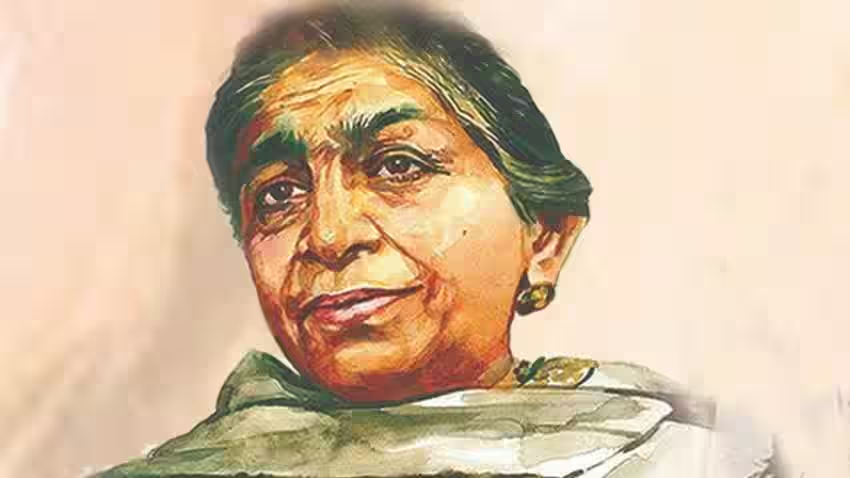Sarojini Naidu: A Symphony of Intersectional Feminism and Resilience

The late Sarojini Naidu was a renowned feminist and poet from India who dedicated her life to the cause of equal rights and social reform. She was at the forefront of the struggle for women's rights, social justice, and independence. Sarojini's intersectional feminism highlighted the intersection of race, class, and gender in her advocacy and activism.
Sarojini Naidu faced numerous challenges throughout her life as an intersectional. One of her major struggles was the fight for equal rights. She fought against the oppressive British rule in India, which restricted the rights and freedoms of its citizens. She campaigned for equal political representation, social reforms, and civil liberties for all.
Another significant problem that Sarojini Naidu faced was her battle against the patriarchal society of the time. She fought for women's rights, challenging the traditional roles and stereotypes that confined women to the private sphere and prevented them from fully participating in public life. She emphasised the importance of education, employment, and equal rights for women.
She had to confront her struggles with health issues. Throughout her life, she battled various illnesses, including tuberculosis, which led to several stays in hospitals and interrupted her activism. Despite these challenges, she continued to be adamant and fought for justice and equality in the society.
Sarojini Naidu faced numerous personal struggles throughout her life. One of her major struggles was balancing her career with her family life. She was a dedicated poet and activist, often leaving her home to travel and speak at public events. This often put her at odds with her husband, who expected her to prioritize her family life over the fulfilment of her ambitions. She was able to overcome these challenges by striking a balance between her personal and professional lives, and as a result, she was able to thrive in both domains.
Another significant struggle for Sarojini Naidu was finding the acceptance in society. Despite being a renowned poet and a prominent figure in Indian society, she was often subjected to criticism and prejudice due to her gender, caste, and political affiliations. She persevered in the face of these challenges, refusing to back down from her convictions and her struggles for social change.
Sarojini Naidu's achievements as a feminist and poet are remarkable. One of her most significant contributions was in the field of literature. She published several collections of poetry and prose, showcasing her lyrical and poetic talent. Her writings reflected her deep understanding of social issues and the struggles of marginalized communities.
Beyond her literary contributions, she played a crucial role in advocating for women's education. She helped establish several schools and colleges that offered education to disadvantaged girls and women. Her belief in education as a tool to empower women inspired many future generations of feminists. She was actively involved in politics, advocating for Indian independence and the fundamental rights of its citizens. She became a president of the Indian National Congress and a prominent leader in the freedom movement. Her political activism brought attention to issues such as social reform, human rights, and gender equality.
A profound impact has been made on Indian society by her work on intersectional feminism. Her advocacy for equal rights and social justice laid the foundation for modern feminist movements in India. As a result of her determination and hard work, other women were inspired to fight for their rights and liberation at the time, challenging patriarchal norms and stereotypes. Her influence was so powerful that it even extended beyond India. She inspired countless feminists around the world, highlighting the importance of intersectionality in fighting for social justice. Her advocacy for women's rights, minority rights, and social justice resonated with people across different social, economic, and cultural spheres.
Sarojini Naidu's legacy as an intersectional feminist continues to resonate today. Her courage, resilience, and dedication to the cause of social justice serve as an inspiration to those who seek to challenge the status quo and fight for equality. Her contributions to literature and education have enriched the discourse on feminism and social justice.
In conclusion, Sarojini Naidu's life is a testament to the struggles, achievements, and impact of intersectional feminism. She was an embodiment of strength and resilience, fighting against the oppression of British rule and fighting for the rights of women. Her work continues to resonate and inspire a new generation of feminists, challenging them to fight for justice at the intersection of race, class, and gender.